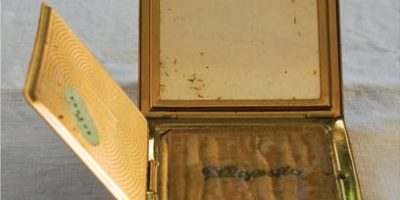Polyglot Devotions
Historical Jewish women’s prayers from Persia, North Africa - and the world over.
The past 20 years or so have witnessed the publication of many books devoted to women’s prayerful expression (Tikva Freymer-Kensky’s Motherprayer, Elizabeth Resnick Levine’s A Ceremonies Sampler, and Irene Fine’s Midlife and The Wise Woman come to mind). Now, A Jewish Woman’s Prayer Book (Spiegel and Grau, $27.50), edited by Aliza Lavie, contributes more Israeli, Persian, and North African voices to this canon.
The original Hebrew version, Tfilat Nashim (Yedioth Ahronot, 2005), brought together women’s prayers for the holidays, life-cycle events, home ceremonies and crises culled from (but not limited to) rabbinic literature, siddurim, and collections of tkhinnes (women’s prayers in Yiddish, dating mostly from the 18th and 19th centuries). The new volume retains the content and formatting of the bestselling original, with the Hebrew prayer texts now accompanied by English translations.
As an anthology, whether in Hebrew or English, the volume is both a treasure trove and a hodge-podge, delighting and frustrating the reader in equal measure. Aside from broad topical divisions, some expected and some unanticipated (e.g., “Holidays” is there with “Prayers for Peace and Redemption”; “Rituals and Customs” alongside “Prayers for Mothers”), there is no apparent organization within each topic, so a late-medieval Italian source can be found alongside a contemporary Israeli composition, followed by a rabbinic selection, followed by tkhinnes — maddening for someone who wants coherence, but a wealth of choices nonetheless. Also heartening are the numerous selections from the Arab and Persian Jewish communities, as well as contemporary Israeli writers, which all together help to distinguish this volume from previous collections of tkhinnes (Devra Kay, Chava Weissler and Tracy Guren Klirs have previously mined that material), and leaves it most resembling Ellen Umansky’s and Dianne Ashton’s Four Centuries of Jewish Women’s Spirituality, although without its North American bias.
This is a book not meant to be read sequentially, but rather dipped into, which can leave the reader oftentimes wondering who a writer is and when she lived. There is frustratingly little information about the sources of some of the texts, especially those from the Yiddish. The Yiddish original is also not printed, which seems a pity, considering how many Yiddish readers there are among us.
A Jewish Woman’s Prayer Book does not have the bibliographical value or historical treatment that Umansky, Ashton and Weissler brought to their work, but it does successfully capture a sense of Israeli women’s spirituality in the early 21st century. As such, it promises to be an important addition to our growing library of women’s rituals and prayer texts.
Debra Reed Blank is the Rabbi Philip Alstat Assistant Professor of Liturgy at The Jewish Theological Seminary in New York.


